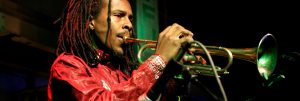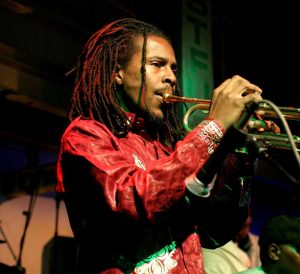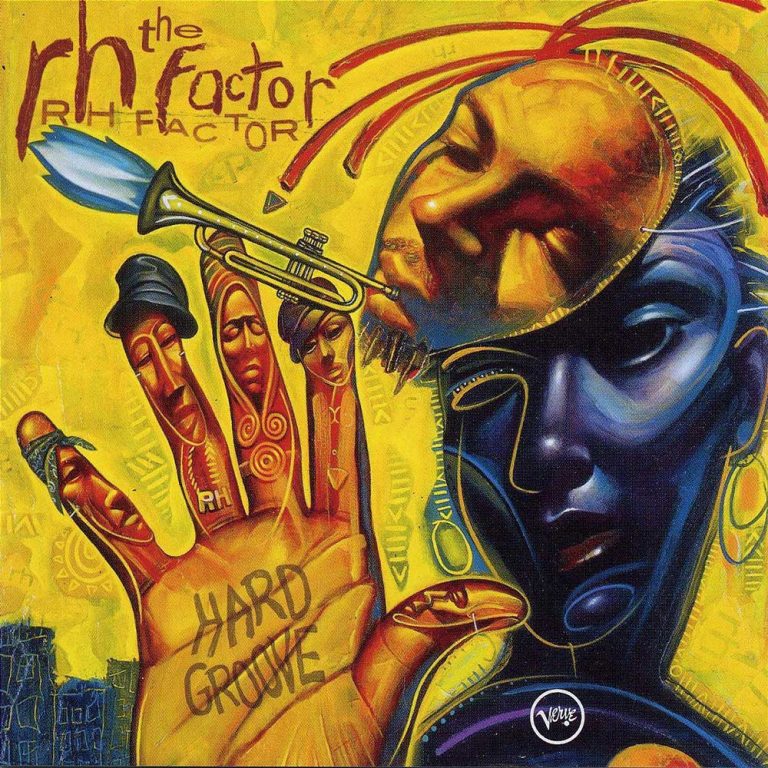What set him apart wasn’t just a consummate sound that was undeniably his own but his keen ear. Hargrove had almost single-handedly found a way to keep the tradition alive while discovering new possibilities in jazz. In time, he would garner equal praise from giants like Sonny Rollins and Kenny Barron, up to the present voices like Christian Scott and Robert Glasper.
The “RH Factor” series is undoubtedly among his most celebrated fusion efforts. Artistically, it gave Hargrove ample breathing room to stretch musically, a throughline of his work with the Soulquarians up to that point – Common’s “Like Water for Chocolate”, Erykah Badu’s “Mama’s Gun”, and D’Angelo’s “Voodoo”. The latter was a promising glimpse of what soul music could look, sound and feel like in the new millennium. Hargrove was one of several musicians who were integral in turning D’Angelo’s second studio effort into a commercial and cultural behemoth. Enlisting an arsenal of frequent collaborators and prominent voices of the neo-soul era, “Hard Groove” delivers equal parts nostalgia for Gen-X’ers and Millennials, while also rendering an impassioned love letter to the Black popular music of his childhood.
The near-eponymous track “Hardgroove” sets the stage before shifting to “Common Free Style.” The Chicago-bred rapper sounds right at home alongside Hargrove’s prowess for syncopation. A future Oscar winner, this track is a reminder of Common’s ability to freestyle at the drop of a hat. As the album’s arranger, Hargrove makes a brazen yet nuanced statement that he and his colleagues are not backing anybody but rather are the instrumentalists playing alongside – and sometimes out in front of – its featured guest artists.
“Poetry” is significant for several reasons. As one of the forebears of jazz-inflected hip-hop, Q-Tip is widely considered a gateway artist for an entire generation. His opening delivery is a journey through my musical discovery, harkening back to when I heard my first jazz sample, feeling awestruck because it was unlike anything I had ever known. Featuring the nimble yet ever-soulful Meshell Ndegeocello on bass and Marc Cary, a longtime friend and frequent Hargrove collaborator, on Wurlitzer, Erykah Badu graces us with her omnipresence as her voice becomes wondrously intertwined with Hargrove’s and the musicians and soon is a unified whole.

Another standout by far is “I’ll Stay,” an interpolation of a track off of P-Funk’s 1974 classic, “Standing on the Verge of Getting it On”. Unlike its original – penned by George Clinton and the late guitar virtuoso Eddie Hazel – everything gets slowed down, from the instrumentation (notably the Wurlitzer provided by D’Angelo) to the song’s timing, punctuated with guitar riffs from Chalmers “Spanky” Alford, a regular on many Soulquarian releases. As the groove-laden intro swells, we await D’Angelo’s vocals with bated breath. Evocative of the Luther Ingram classic, “If Loving You Is Wrong,” combined with Hargrove’s arrangement, his vocals transform “I’ll Stay” into a harrowing cautionary tale of the perils of an adulterous affair. D’Angelo’s ability to retain the spirit of an original song while making it his own is bar none.
“Hard Groove” boasts a veritable who’s who of jazz: bassists Reggie Washington and Pino Palladino, Willie Jones III on drums, Jacques Schwarz-Bart on tenor sax, and the late keyboardist Bernard Wright, who would reach R&B stardom with his 1985 classic, “Who Do You Love.” The album’s mind-blowing cover art by Rudy Gutierrez was reportedly inspired by Carlos Santana’s 1970 best-selling release “Abraxas”. Revisiting this album is a trip down memory lane that elicits nothing but sheer joy. After hearing the musicians’ laughter in between session takes, it is clearly reciprocal.
Shannon J. Effinger (Shannon Ali) has been a freelance arts journalist for over a decade. Her writing on all things music regularly appears in The New York Times, Washington Post, Pitchfork, Downbeat, and NPR Music. She lives and works in New York City.
Header photo: Cary Hammond/Redferns via Getty



